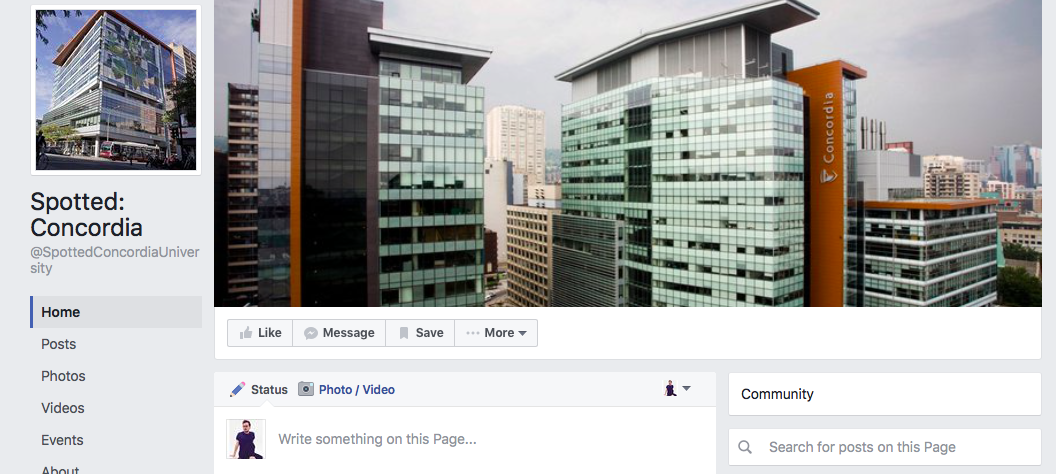Yes, we’re going there. Someone call the fire department to put out this blaze.
Now we will admit, we do enjoy Spotted: Concordia for their cheeky content. Where else can one find a mixed bag of pathetic romantic posts, an endless supply of memes and, of course, actual concerns from Concordia students?
Recently though, members of the Spotted community have been taking aim at the student press, posting vindictive messages about The Link and our beloved paper, The Concordian. These posts have described our publications as “SJW,” which means Social Justice Warrior—and claimed that we don’t accurately represent the university.
One post even targeted our opinions editor, calling him a “liberal and socialist,” and stated he was reminiscent of “a goddamn buzzfeed article.” Sounds like we’ve got ourselves a troll on our hands.
But this is part of the job, and as journalists, we are accustomed to dealing with harsh comments along these lines. Whenever you publish your writing, it’s bound to be criticized to some degree.
We’ve also seen political critiques from students that claim we are leftist, while others will claim that we’re too right-wing and conservative compared to our counterparts. Most of these comments are coming from individuals who’ve only read one article, or seen a cover or two, because we try to be nonpartisan and present the facts in a professional and journalistic manner as best as we can. We also try to be open to the different views out there. But we clearly can’t please everyone, and that’s okay.
The real problem here is that certain students think our paper is controlled by university bureaucrats that tell us what to write, spewing propaganda on the weekly.
The truth is actually quite the opposite, and while we occasionally communicate with Chris Mota, the director of Communications at Concordia, our news and opinions sections have actually spurred a reaction from the university in the past. Particularly, when we broke the news story regarding the student who filed a human rights complaint against Concordia last month.
It’s also important to add that The Concordian‘s content is made up of student contributors who submit their articles every week. The students come from a variety of academic backgrounds, writing levels and styles. Our editorial staff is also quite diverse, with many individuals on our masthead coming from backgrounds in JMSB, the arts and fine arts, and not solely from the journalism department. This creative and pluralistic environment allows the writers to express their unique and distinct voices.
Our pages are open to everyone from the student population—moreover, we also accept articles from fellow alumni. If you want to write, you can. If you don’t like what you see, you can get in contact with us and write what you think needs to be written. Whether it’s a rebuttal to an opinions piece you disagreed with or a letter to the editor, there are ways to express yourself through The Concordian. We are open to critique, and in fact, encourage it, as we are always looking to better our content. That being said, we are all students collaborating, thus, we are all learning as we go.
It’s way more cowardly to hide behind a computer screen under the guise of Spotted: Concordia—instead, why not contribute to student press and have your voice really heard?
